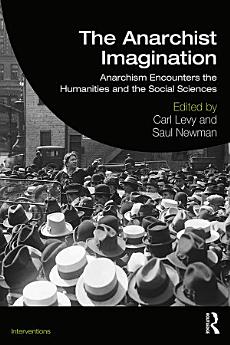The Anarchist Imagination: Anarchism Encounters the Humanities and the Social Sciences
Über dieses E-Book
Drawing on a long historical narrative that encompasses the 'waves' of anarchist movements from the classical anarchists (1840s to 1940s), post-war wave of student, counter-cultural and workers' control anarchism of the 1960s and 1970s to the DIY politics and Temporary Autonomous Zones of the 1990s right up to the Occupy! Movement and beyond, the aim of this volume is to cover the humanities and the social sciences in an era of anarchist revival in academia. Anarchist philosophy and anarchistic methodologies have re-emerged in a range of disciplines from Organization Studies, to Law, to Political Economy to Political Theory and International Relations, and Anthropology to Cultural Studies. Anarchist approaches to freedom, democracy, ethics, violence, authority, punishment, homelessness, and the arbitration of justice have spawned a broad array of academic publications and research projects. But this volume remembers an older story, in other words, the continuous role of the anarchist imagination as muse, provocateur, goading adversary, and catalyst in the stimulation of research and creative activity in the humanities and social sciences from the middle of the nineteenth century to today.
This work will be essential reading for scholars and students of anarchism, the humanities, and the social sciences.
Autoren-Profil
Carl Levy is a Professor of Politics at Goldsmiths College, University of London, UK. He is the author of twelve single-authored and edited books and over 75 journal articles and chapters in books.
Saul Newman (PhD UNSW 1998) is a Professor of Political Theory at Goldsmiths, University of London, UK. His research is in continental political theory, postanarchism and radical political thought. His most recent publication is Political Theology: A Critical Introduction (2018).







